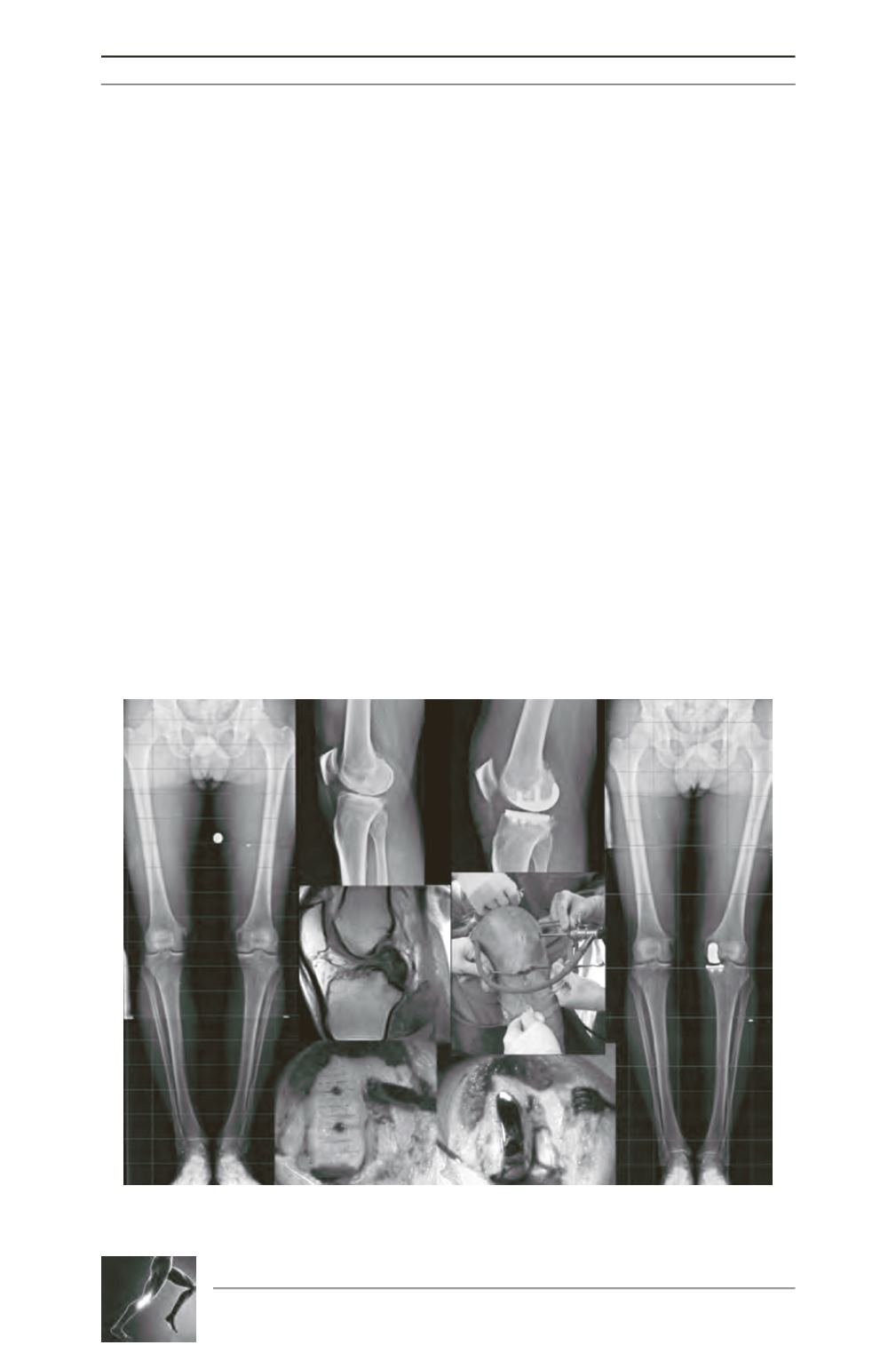

S. Romagnoli, M. Marullo, M. Corbella
200
Medial UKR is easy to convert in bi-UKR,
only extending the medial mini-midvastus
approach. On the contrary, performing a bi-
UKR by the lateral approach done for a lateral
UKR is not possible. A tibial tuberosity
osteotomy is necessary to obtain adequate
exposition of the medial compartment. This
shrewdness should be done alsowhen indication
changes intraoperatively from lateral UKR to
total knee replacement.
Consider concomitant
ACL reconstruction
In patients with medial OAandACL deficiency,
most surgeons will perform TKR. But patient
younger than 55, very active and with no major
deformity should be limited by this choice,
with diminished proprioception and knee
function. In this kind of patient, if motivated, a
UKR with concomitant ACL reconstruction
has to be considered (fig. 7) [17-18].
Surgery starts with semitendinosus and gracilis
harvesting. In the last years we prefer tibialis
anterioris allograft of artificial ligaments to
reduce morbidity. Both the tibial and femoral
tunnels are prepared arthroscopically and the
graft is passed in the joint. The graft is then
fixed in the femoral side, but not in the tibial
one. At that time, UKR is done. After placement
of the final components, the graft is fixed also
on the tibial side.
Consider all the
affected joints
In most cases a single joint causes patient’s
disability. Anyway, sometimes both knees, or a
knee and a hip are affected. Surgeon has to
evaluate the whole patient, not only his knee. If
more than one joint is affected, UKR will not
improve patient’s function and surgery will be
considered as a failure. In these cases, surgeon
has to consider simultaneous replacement of all
the joints affected (fig. 8).
Fig. 7: 53 years-old man, very active, with right left knee medial OA and ACL insufficiency. He had
successful one-stage medial UKR and concomitant ACL reconstruction.









